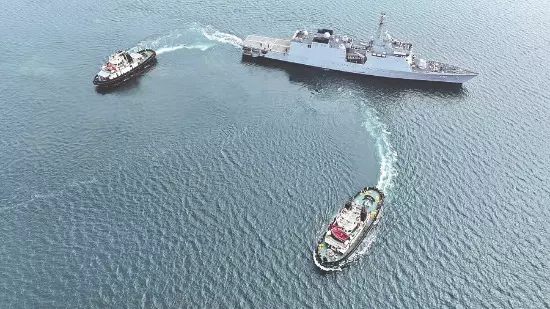Parliamentary panel flags rising threats, calls for stronger Indian Ocean strategy

New Delhi: The latest report of the Standing Committee on External Affairs, chaired by Shashi Tharoor, has underscored the daunting challenges confronting India in the Indian Ocean Region (IOR). The Parliamentary panel cautioned that piracy, contained for decades, is making a troubling resurgence, driven in part by Houthi militant attacks on shipping off the Red Sea. These assaults have forced vessels to divert around Africa, lengthening transit times, raising costs, and increasing vulnerability.
The report also flagged a sharp rise in drug trafficking via maritime routes, with seizures worth tens of thousands of crores in recent years, highlighting the multi-faceted nature of the threats facing India. The panel noted that India regards the IOR and the broader Indo-Pacific as a strategic continuum, both exposed to similar risks from state and non-state actors. India’s Indo-Pacific vision, articulated at the Shangri-La Dialogue in 2018, calls for a “free, open and inclusive order” anchored in respect for sovereignty, adherence to international law, and ASEAN centrality. While the country’s growing maritime role has been welcomed by most IOR states, the report advised that sustained investment in naval capacity, port infrastructure, regional diplomacy, and climate resilience will be essential to maintain this leadership.
With its 7,500-km coastline, more than 1,300 islands, and an Exclusive Economic Zone spanning 2.4 million sq km, India sees the ocean not merely as water, but as a strategic arena linking security, economic, and cultural priorities. The country’s maritime policy has evolved from a non-aligned “Zone of Peace” approach to a more assertive posture, particularly after the 2015 launch of the SAGAR (Security and Growth for All in the Region) doctrine. In 2025, this was broadened into the MAHASAGAR (Mutual and Holistic Advancement for Security and Growth Across Regions) framework, extending India’s focus to the wider Global South.
India’s dual role as a “net security provider” and “first responder” has seen its Navy conduct anti-piracy patrols, humanitarian aid missions, and regional training. Maritime partnerships have deepened with littoral states, supported by defence cooperation, infrastructure aid, and technology transfers. Initiatives—through the Indian Ocean Rim Association, BIMSTEC, Quad, and Indo-Pacific Oceans Initiative—reinforce India’s vision of a rules-based maritime order.



